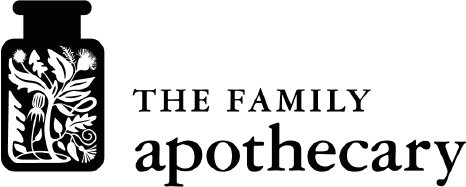It is normal for young children to act disobediently and impulsively at times. However, some children display hyperactive behaviour that is unusual for that age group and particularly hard and demanding for their parents to handle. These kids find it extremely difficult to keep still and ‘behave’, even when their parents have told them to stop. They are incessantly fidgeting, talking, grabbing objects, or running around. These children feel the need to keep moving around as they have not yet developed the skills to manage these impulses.
It’s perfectly understandable to be concerned if your child is constantly moving around like this. IN this blog post, the Family Apothecary explains various aspects of hyperactive child behaviour and how to handle it.
What is Hyperactivity?
It is a common misconception that hyperactivity is merely just a case of children running around a lot, but hyperactivity is in fact a condition that causes a child to constantly act out active behaviour at an abnormal or extreme level. Children can do this all the time, which can be particularly embarrassing for parents at times and places when it’s inappropriate.
What Are the Signs That a Child is Experiencing Hyperactivity?
Children who are hyperactive often struggle to concentrate at school and usually display impulsive hyperactive behaviour, including:
- Regularly throwing tantrums
- Disobeying parents and teachers
- Moving constantly
- Impulsive and/or aggressive behaviour
- Getting distracted very easily
- Speaking out of turn
- Blurting out what they say
- Hitting other children
- Won’t stay in their seat
What Causes Hyperactivity?
Hyperactive child behaviour is usually a symptom of a mental or physical health disorder the child has. Such disorders can include:
- ADHD
- Thyroid/adrenal issues
- Brain disorders
- Nervous system disorders
- Psychological disorders
Possible Solutions for Hyperactive Child Behaviour
A child’s hyperactive behaviour can become worse if left untreated, and may eventually cause your child to become dysfunctional when they’re an adult. The earlier your child starts receiving treatment, the more likely it is that your child can better control their hyperactive behaviour in the future. Which treatment your child should receive will depend on the particular disorder they have. Such treatments can include:
Parenting Skills Training
Parents can be taught communication skills and techniques that help with understanding and managing their child and their hyperactive behaviour.
Behavioural Therapy
Behavioural therapy is designed to teach children how to examine their own behaviours and learn to understand why such hyperactive behaviour is inappropriate, and therefore encourage them to not behave this way. Both the parents and the child will develop strategies to utilise for when your child behaves in certain situations, such as giving your child feedback on why their behaviour is inappropriate and telling them how to behave instead.
Social Skills Training
Social skills training can be helpful for children that struggle in social situations. They will be taught the social skills and behaviours they will need when socialising, such as how to have a conversation and play with other children. Clients may be referred to an appropriate therapist for these skills.
Anger Management Training
With anger management training, children can learn the signs that they’re getting frustrated and are taught various coping strategies, relaxation techniques and stress management skills to help them calm down and control their anger.
Medication
Certain medications may be prescribed for your child in the western medical model to help them control their impulsive and hyperactive behaviour. These medications can often have side effects for children. Refer to my section on adhd for information on how we approach children with restless or hyperactive behaviour and also my website section on tantrums.
There are many homeopathic remedies used in restlessness or hyperactive behaviour in children. The most common homeopathic remedies for hyperactive behaviour are:
- Tarentula hispanica
- Zincum metallicum
- Hyosyamus
- Lachesis muta
- Veratrum album
As homeopathic remedies are always prescribed based on individual symptoms, your child may need a different remedy than in the above list.
Book an Appointment Today to Help Your Child
If you suspect that your child has hyperactivity, or if you would like to find out more about hyperactive child behaviour, talk to Sarah at The Family Apothecary. She can be contacted by calling 0408 542 762 or sending an email to [email protected].










